Graham Reid | | 8 min read
The Waterboys: I Can See Elvis
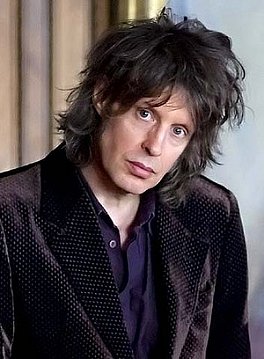
About 15 months ago Mike Scott of the Waterboys released a whopping seven CD set of the sessions which lead to the band's two-years-in-the-making breakthrough album Fisherman's Blues.
The band had enjoyed success prior to this particular channeling of Celtic music, rock'n'roll and American gospel – notably with the singles the Big Music and Bang on the Ear – but Fisherman's Blues was a sea change for Scott, whose Waterboys are a band which has constantly enjoyed a changing series of line-ups.
What the Fisherman's Box illustrated was not just the musical breadth Scott was embracing but also the spiritual and literary reach he had.
Born and raised in Scotland – where he grew up on pop music, the country of Hank Williams and the lyrics of Bob Dylan -- Scott studied English literature at the University of Edinburgh and the lyrics of Scottish, Irish and English poets fed into his writing.
He and some new Waterboys are back with the album Modern Blues recorded in Nashville (and play Auckland soon ,see date below), but his previous Waterboys album was An Appointment With Mr Yeats for which he set poems by William Butler Yeats to music.
But Modern Blues is a rollicking return to rock'n'roll, Celtic music and his own brand of soul. He sings of the powerful young Presley (“skinny like he was, razor quiffed and leather squeezed”) in the afterlife playing with Jimi Hendrix, Keith Moon and Charlie Parker while John Lennon is doing handstands. There are songs of love and spirituality, about favourite places like cafes and record shops which were “the nearest thing to hip in this shithole, and it's gone”.
The music across the nine songs moves from rocking out organ-driven rock, tumbling Dylanesque images, aching ballads . . . .
And he sings “Empire rise and fall, but through it all, I'm still a freak” over a rollicking groove.
There are hints of a lineage which runs through Thin Lizzy, Van Morrison and Springsteen . . . and should shape well when the band tours, in Auckland on March 31.
Just before Christmas he spoke to Elsewhere from a Hollywood hotel before going back home to Dublin where Fisherman's Blues had its genesis almost 30 years ago.
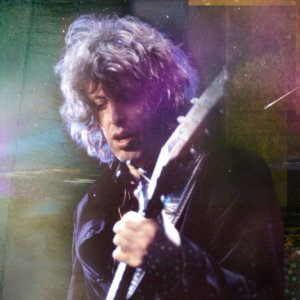 You just launched the new band a
fortnight ago.
You just launched the new band a
fortnight ago.
We did three shows and they were great, one in Ireland and two at the famous Paradiso Club in Amsterdam. There's still work to do and we've got to build the repertoire but the band is fantastic.
You have an interesting band, bassist David Hood is a legendary Swamper and guitarist Zach Ernst whom I know from Black Joe Lewis . . .
Wow! That's great, you know Black Joe Lewis!
Oh yes. I'm always curious about how musicians like yourself meet people like these. Where did you first meet David for example?
He was recommended by Lisa our manager who knows him, and that was for recording sessions. She said 'What about David Hood?' and there was only one answer to that question. And Zach came the same way. I needed a guitar player who played in that late Sixties Southern soul style, kind of like a Memphis style and again Lisa – who lives in that part of the world and knows all the musicians – recommended Zach.
Do they have to audition for you or do you just get together for a couple of days and see how it goes?
With David Hood I knew immediately he was going to be great so we rehearsed, but it was no audition. With Zach, because I didn't know him, I checked him out on You Tube. In fact I checked out several Black Joe Lewis tracks and thought this guy was a terrific guitar player so we should give it a shot. He was hired to play on two tracks on the album.
Am I guessing right if I say the first track Destinies Entwined and the last one, Long Strange Golden Road?
Not the first one, he's on November Tales and the last one Long Strange Golden Road.
When I heard Destinies Entwined I though that was an interesting guitarist and wondered who it was. Is that you?
Yes, that's me! The imported Scottish guitarist.
You are channeling your inner Thin Lizzy on that one.
Yes (laughs)
The album was recorded in Nashville at Sound Emporium, I believe. I've been to the city and can see the attraction but what specifically took you there? Bob Dylan went there and maybe that's enough?
(Laughs) No, not following Bob. I wanted to record in Nashville partly because two of the musicians on the record live there, Brother Paul our keyboard player, and Jay Barclay who is the other lead guitarist. But also because Nashville still has these great studios. So many cities in Europe and the States have seen a reduction in the number and quality of the recording studios, but Nashville still has a really healthy studio industry.
I knew if I recorded there I could get a world class studio and a room where everybody could play at the same time, and an engineer who knew how to record a live ensemble.
What do you look for in a studio, because you've seen more than your share.
Yeah. The first thing is the atmosphere of the room we're going to play in . . . and it's got to be big enough to house all the musicians because we all play together. That's how I like to work. It's also got to be a place you want to play in. I don't like places that are too clinical or too boring. I like a place with a bit of character.
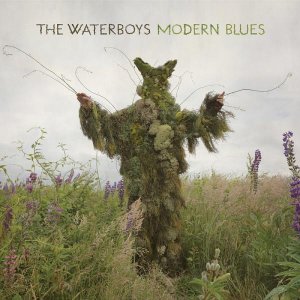 How long did you book the studio for? I
guess what I'm asking is did you have most of the songs written
before or did you go in thinking, 'Let's try this and move this part
around and see how it goes'?
How long did you book the studio for? I
guess what I'm asking is did you have most of the songs written
before or did you go in thinking, 'Let's try this and move this part
around and see how it goes'?
No, all the songs were completely written and rehearsed, and we had seven days to record all the tracks and then a week of overdubs, mostly vocals, backing vocals and unusual instruments like trumpet. Then we had a week of mixing with me in charge, but that didn't work out and I had to fire myself. Instead we got the great Bob Clearmountain to do the final mix.
It's a brave man who realises he is not up to a task so lets the control go.
Yeah, brave but sensible.
I'd like to ask about some specific songs because every now and again I think, 'Wow, that's extraordinary'. It seems to me a very expansive and lyrical reach again. After the Mr Yeats album did you feel you really need to return to exploring your own ideas.
I knew it had to be my own songs and Mr Yeats, although it's not really a Celtic record, or a folk record, it was very Irish-centric because of the lyrics. I knew I didn't want to make anything like that. I wanted to get back to rock'n'roll. I had this set of songs and they dictated the style of music.
I consider it a rock'n'roll and soul album.
Yeah, me too.
There are songs like Nearest Thing to Hip which sounds like a great soul song. But I note you reference Dean Moriarty and you have that segment where we hear Jack Kerouac reading . . . Why do these people still resonate across the generations do you think? They somehow still make sense to us today.
I think nothing comparable has replaced them and that book On the Road stands for a way of looking at the world and interacting with it which is timeless.
I guess we don't reference Hunter S Thompson and Tom Wolfe in the same way as we do Kerouac.
Right, and there is such love and humanity and enthusiasm in On the Road. There is spiritual vision in the book.
I can see why you would be attracted to that aspect. Incidentally was it easy to get the rights to use that Kerouac reading?
It wasn't hard at all. We just had to pay them $500 I think. It's from one of his album.
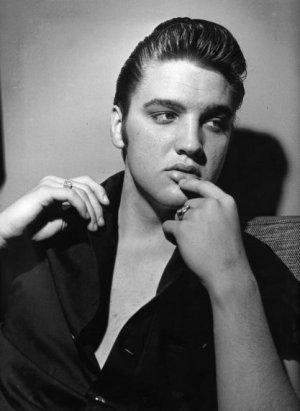 Yes, I recognised it instantly. I have
that great Rhino box set of his readings. One of the tracks I think is
outstanding is I Can See Elvis because it is so gentle and
sympathetic. What does Elvis Presley mean to you?
Yes, I recognised it instantly. I have
that great Rhino box set of his readings. One of the tracks I think is
outstanding is I Can See Elvis because it is so gentle and
sympathetic. What does Elvis Presley mean to you?
Like everyone else in rock'n'roll, I was influenced by Elvis. If it wasn't for Elvis I wouldn't have a job, and I think he made such fantastic music in those early years and occasionally in his later life as well. He helped us liberate our sexuality and fused black and white music. So he was this huge cultural figure.
You've got the young and thin godhead Elvis in the song, not the icon.
Yeah, I wanted to reclaim Elvis for the counterculture in the song. I didn't want the guy who made all the bad movies or the Las Vegas caricature Elvis. I wanted a young Elvis who hadn't gone wrong, who was influential and on fire.
And playing with Jimi Hendrix?
That's right.
I love the image of “John Lennon doing handstands”. This is Elvis in Heaven or an imagined world where he remained young.
Yeah, Elvis in the rock afterlife.
With Charlie Parker. I come back to Nearest Thing to Hip. It's in that long lineage of poets and songwriters looking back to earlier times. I immediately thought of Van Morrison's lovely rumination On Hyndford Street and also more recently Ray Davies singing about the loss of the workingmen's cafes. That notion of reverie and loss when we look at our world and it's gone. Is that the aging process or is there a bigger picture in it for you?
No, I could have written it when I was in my 20s. It is just a song about idiosyncratic shops and charismatic cafes vanishing which is something I used to notice as a kid as I well.
When I go back to Scotland and England, that is what I notice has gone or is rapidly going. Every pub now serves exactly the same food. So what is it about Dublin that keeps you there, that it's not like that?
Yeah, it has a lot of character. The Irish are bonkers so it's harder for corporations to make any homogenization in Ireland because the people are all crazy, they won't take it.
Tell me about The Girl Who Slept For Scotland. I grew up with 'home rule for Scotland' and am I reading too much into that song as some metaphor for the independence movement?
Oh yes, you are reading far too much into it (laughs) It's just about a girl who couldn't wake up in the morning.
My reading is a good one though.
Well, the writer didn't intend that.
Ah, but you put it into the world and have lost it now.
(Laughs) That's okay too.
I love Long Strange Golden Road, the line “Venus in V-necked sweater” is worth the price of admission alone. Tell me about that, there's such a lot of passion in that.
I wrote a book a few years ago about my life in music and while I was researching it I went through all my old papers and journals, songbooks and diaries. I found this verse, 'I was longing to be wooed, I was ready to be humbled, by the words that you had written, by the syllables you mumbled'. And I didn't remember writing it.
So I googled it so see if I'd written down someone else's words, but it came up blank. So I realised I must have written it myself, and I liked it so much I continued writing in that way and wrote the whole song. It turned out to be this metaphorical road journey, some of which is autobiographical and some of which is fictional. And it's a favourite among all my songs.
It's the perfect ending to the album I think. I love the way the album starts when it hits you hard with Destinies Entwined and here is this long ending. Matters of faith are still evident throughout, especially in November Tale. Are you a man of any particular faith, or even just faith in general?
No I'm not. I don't belong to any religion.
But you read widely about matters of faith?
I don't really like that word faith. It's not a big word for me. I read a lot of spiritual literature if that's what you mean. The reason I don't like the word faith is it tends to be associated with Christianity – “the Christian faith”. No one talks about “the Buddhist faith”.
When was the last time you went to church?
Oh no, you won't catch me on that one (laughs). I think the last time was for my half-sister's wedding . . . and I went strictly as an alien.
.
The Waterboys play Auckland's Aotea Centre March 31

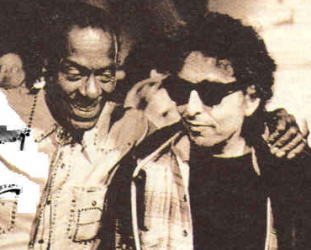
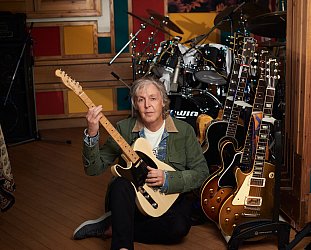
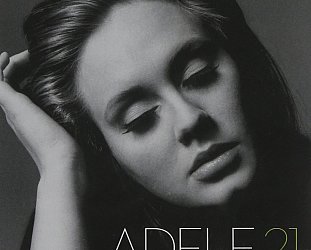
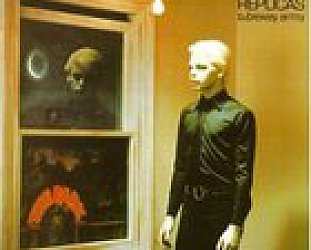
post a comment